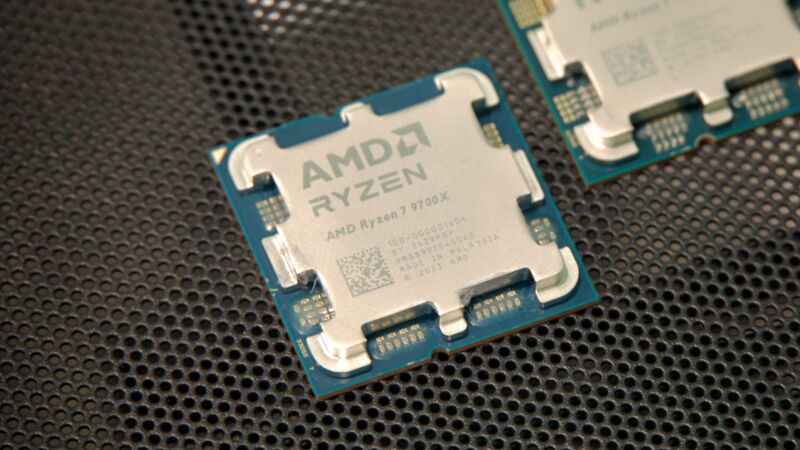
Enlarge / We (and other testers) have had issues getting the Ryzen 9000 series to behave normally. (credit: Andrew Cunningham)
AMD recently released its Ryzen 9000-series processors, which brought the company's new Zen 5 CPU architecture to desktops for the first time. But we (and multiple other reviewers) had issues getting the chips' performance to match up to AMD's promises, something that the company wasn't able to fully resolve before the processors launched to the public.
AMD has since put out statements explaining some of the discrepancies and promising at least partial fixes for some of them.
A Windows problem
The main fix for slower-than-expected game performance, the company says, will come with the Windows 11 24H2 update later this year, which will include "optimized AMD-specific branch prediction code" that improves Ryzen 9000's performance by between 3 and 13 percent in an AMD-provided cross-section of games and benchmarks (though a handful of tests also showed no change). AMD says that these improvements will also benefit Zen 3- and Zen 4-based Ryzen processors, but that "the biggest boost" will be reserved for Ryzen 9000 and Zen 5.
Read 12 remaining paragraphs | Comments
Ars Technica - All contentContinue reading/original-link]




